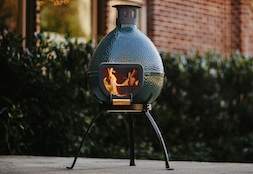Love, the Judd Apatow-produced Netflix series, is not exactly the kind of show you’d think of as “binge-worthy.” Its protagonists, the hot-and-cold thirtysomething lovers Mickey (Gillian Jacobs) and Gus (Paul Rust), who provide the bulk of the show’s drama, are caustic and cloying. There are no murderers to catch; nobody’s life is in imminent danger. Scarce are the cliffhangers, at least in a traditional sense, which would otherwise propel you forward. And yet, whenever a new season drops, I find myself racing through it faster than any other series.
“I’ve heard from people who are like, ‘I was so sick of your characters, but I binged it all in one day!’” Paul Rust, the co-creator and star, tells me when I try to explain this to him. And indeed, I was sick of them, too, although sick of them in the way you're sick of the best friend you’re traveling with, or the paramour with whom you’ve been hibernating all winter. Revolving more or less around a single relationship, for more than 30 episodes, Love cultivates a claustrophobic intimacy—not only between the characters themselves, but between those characters and the viewer. To binge Love is to enter a relationship you want to turn away from yet find you cannot.
If the first season was about Gus and Mickey figuring out how to get together, and the second season was about Gus and Mickey figuring out how to be together, the third and final season, which goes live on Netflix Friday, is about Gus and Mickey figuring out how to be happy together.
“The challenge of this season was, ‘How can you find conflict when your relationship is going well?’” Rust says. “A lot of the time that ends up being conflicts with work or with friends...if you’re frustrated with your job that can somehow affect your relationship, or poison it.”
While Gus and Mickey’s respective work lives have always played a role in the series, they figure more prominently in the final season. Gus, who works as a tutor on the set of a fantasy series, Witchita, decides to go ahead and make his own passion project, described by a friend as “Rear Window, but better.” Mickey, meanwhile, is still coming to terms with her newfound success at the radio station where she works. Their friends also become the source of some turmoil, as the relationship between the oafish Randy (Mike Mitchell) and Mickey’s Australian roommate, Bertie (the impossibly charming Claudia O’Doherty), begins to fracture.
Despite the weight given to the supporting cast this season, Love is, as it always has been, about Mickey and Gus’s relationship. It’s a will-they-won’t-they that becomes a will-they-won’t-they-continue, a romantic comedy that ends and begins again, stretched and fleshed out to the point that the comedy gives way to a touching realism.
“When we first started the show, I remember thinking I wanted this to be a comedy where people tune in because it’s a laugh riot,” Rust says. “As soon as we started writing it we realized, you know, we’re talking about how people who are damaged are trying to make sense of relationships. It became very clear that it’s going to feel wrong or phony if we’re trying to get a joke out every 20 seconds. And that’s been the nicest surprise. [Creating] something that can be funny but also human has been really the most pleasurable aspect of working on the show.”
This tone may seem familiar to fans of Judd Apatow’s brand of heartfelt comedy, and it comes as no surprise that he helped create (and write, and produce) the series, along with Rust and his wife, Lesley Arfin. But Love is notably darker than anything Apatow has done on his own. Mickey is an alcoholic, as well as a sex and love addict; Gus is codependent, a consummate “fuckup” with a wimpy, people-pleasing mien that belies flashes of visceral anger and frustration. Both have trouble accepting the love and happiness they deserve, which manifests itself in self-destructive tendencies. “Did I only like her because she was fucked up?” Gus asks himself, in one episode. “Did she only like me because she was fucked up?”
Rust tells me he and Arfin drew on Jim Carrey and Kate Winselt’s characters from Michel Gondry’s inimitable, fantastical Eternal Sunshine of the Spotless Mind—as well as, at least subconsciously, Adam Sandler's character from Paul Thomas Anderson’s strange and melancholic romance, Punch Drunk Love. But unlike the characters in those movies, and unlike the characters in most romantic comedies (or dramas, for that matter), neither Mickey nor Gus has more power than the other; she isn’t chasing him more than he is her; and while it may not seem like it at the beginning, Mickey and Gus, by the end, are approximately the same level of imperfect—the way many people in real relationships are. Which may also explain why Love can be so hard to watch—and so difficult to turn off.
To finish our conversation, I ask Rust what he’s learned about love and relationships from making a show about love and relationships. He demurs, conceding that he's no more of an expert than before.
“I wouldn’t say I came away with any great insight into everything,” he says. “If anything, it’s helped me understand [that] nobody wants to do the wrong thing. Everyone’s trying to do what they feel is right, and everybody has their reasons.”






